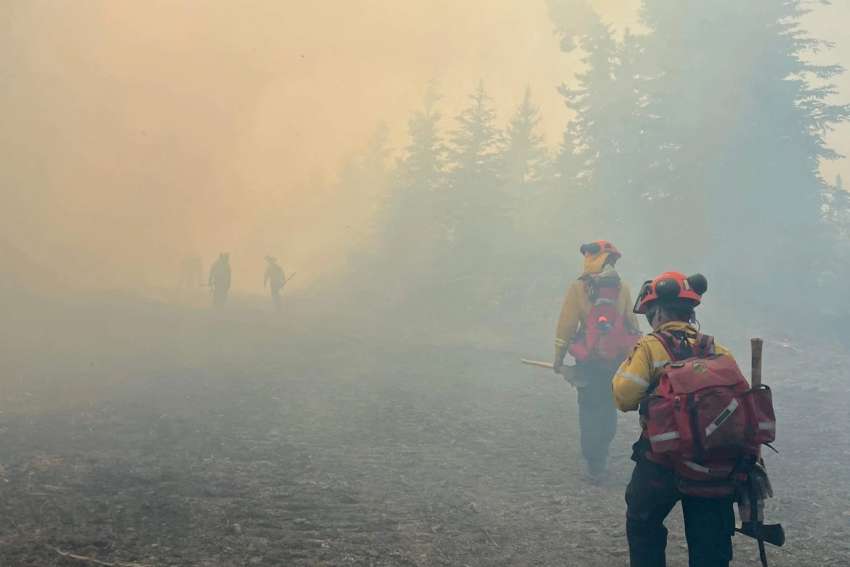At some point during my journey within the Catholic Worker Movement, I first heard these words attributed to Rabbi Simcha Bunim Bonhart, “the sins we commit, these are not the worst thing. After all, temptation is powerful, and we are weak. The great crime is that we could move beyond our mistakes at any time, and do not.”
Spurred on by recent international climate talks and Canadian wildfire headlines, I have been thinking about this in relation to the ecological crisis we are facing. With each passing year, the challenge it poses to this pillar of my faith becomes larger. It increasingly appears that “too late” is a very real possibility for the human family on this planet. Accepting this possibility is a spiritual challenge because if I do, it means accepting untold suffering for current and future generations of God’s children who will pay the price of our great crime.
Accepting that in an abstract sense from the comfort of my North American lifestyle is hard enough. Accepting it when you are part of an international confederation who daily walk and stand with the most impoverished and oppressed members of our human family is increasingly unbearable. We repeat again and again — our great crime means that those who contributed the least to this problem are the ones who are the most affected by it.
The Caritas family, made of 162 national organizations (including us here in Canada) operating in 200 territories, has been present at the recently completed Bonn Climate Change Conference. In a side event focused on climate action and food, the newly elected general secretary of Caritas Internationalis, Alistair Dutton, said, “We urgently need just global food systems that ensure food security. Caritas member communities constantly say they can’t feed their families because of more extreme and erratic weather.”
This is why I am so committed to my own ongoing ecological conversion, described by the Holy Father in Laudato Si’ (LS 216-221). Sometimes people understand the idea of “ecological conversion” in terms of purely material changes — like coverting to “recycle more” or “drive cars less.” They set it up in contrast to more traditional spiritual understandings of conversion — converting to the belief that Jesus is the Son of God who saves the world. This is harmful because it makes it too easy to dismiss. What Christian would argue that converting to recycling was as important as converting to belief in Jesus? This is disintegration and the call of our faith is to integration. The Holy Father quotes Pope Benedict who said, “The external deserts in the world are growing, because the internal deserts have become so vast” (LS 217). This is a beautiful way to show the integral vision of an ecological conversion.
The ecological conversion people experience is one “whereby the effects of their encounter with Jesus Christ become evident in their relationship with the world around them. Living our vocation to be protecters of God’s handiwork is essential to a life of virtue; it is not an optional or a secondary aspect of our Christian experience” (LS 217).
Ecology is the study of relationships that form a system. Ecological conversion takes the notion of conversion beyond the individual and into the community. The Holy Father says that “…self-improvement on the part of individuals will not by itself remedy the extremely complex situation facing our world today…Social problems must be addressed by community networks and not simply by the sum of individual good deeds… The ecological conversion needed to bring about lasting change is also a community conversion” (LS 219). In other words, we are not simply saved alone but we are also saved together. This is why I believe deeply in the mission of Caritas.
I truly believe that if humanity is open to an ecological conversion, the fruit of our encounter with God who loves us and with Jesus who is among us, all things are possible. In this way, I can still believe that it will never be too late, even on the day when scientists tell us that it is.
(Stocking is Deputy Director of Public Awareness & Engagement, Ontario and Atlantic Regions, for Development and Peace.)


